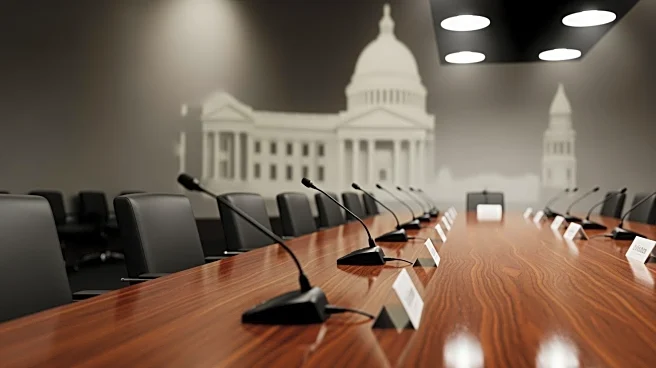What's Happening?
The Pentagon has introduced a new policy requiring journalists to adhere to stricter rules on press access, which has led to significant backlash from major news organizations. The policy mandates journalists to acknowledge
that they could be considered security risks and have their Pentagon press badges revoked if they request classified or certain unclassified information from department employees. As a result, at least 30 news organizations have declined to sign the policy, citing concerns over press freedom and the ability to conduct independent newsgathering. This has led to journalists vacating their offices at the Pentagon and returning their press credentials.
Why It's Important?
The new Pentagon policy has raised significant concerns about press freedom in the United States, as it potentially limits journalists' ability to report on national security issues. The refusal of major news outlets to comply with the policy underscores the tension between government control and media independence. This development could impact public access to information about military operations and policies, affecting transparency and accountability. The situation also highlights the ongoing challenges faced by journalists in maintaining their role as watchdogs in a democratic society.
What's Next?
The refusal of news organizations to sign the Pentagon's new policy may lead to further discussions and negotiations between the media and the Department of Defense. There could be potential legal challenges or advocacy efforts aimed at revising or overturning the policy. Additionally, the broader implications for press freedom may prompt civil society groups and media organizations to rally for stronger protections against government overreach.
Beyond the Headlines
This situation reflects a broader trend of increasing restrictions on press freedom globally, where governments are imposing more stringent controls on media access and reporting. The ethical implications of such policies raise questions about the balance between national security and the public's right to know. Long-term, this could lead to shifts in how media organizations operate and advocate for their rights.








